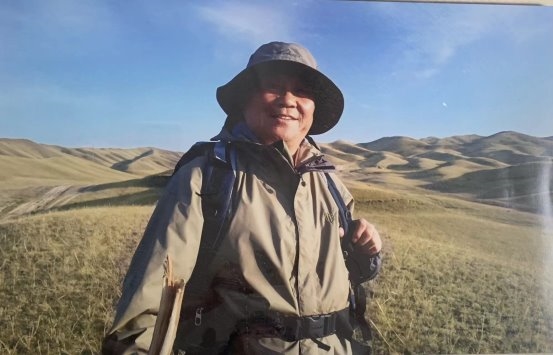
张介宇,1948年出生。自幼酷爱绘画,擅画山水画。著名画家黎雄才的入室弟子,胡杨画派的创始人。作品多为宏篇巨制,风格融南北、中西画风为一体,浑厚蒼劲,雄强壮丽,多为国家重要部门悬挂收藏。
张介宇现为北京胡杨礼赞书画院院长,胡杨艺术研究院院长,中国美术家协会会员。曾获“中国当代书画艺术杰出成就奖”“中华当代杰出功勋艺术家”等称号,是人民大会堂金色大厅《胡杨礼赞》的创作者。
2001年元月,受文化部之邀,赴法国巴黎联合国教科文组织总部,参加“中华世纪之光——中国当代书画名家艺术大展”,作品《黄河颂歌》被陈列主厅,受到联教总部和国外友人的高度赞赏。2004年至2009年,五年时间,先后多次深入新疆、内蒙古胡杨林写生,创作出长七十米,高二米三的巨幅胡杨长卷。张仃先生为之题写卷首,邵大箴、李树声、李松、刘㬢林、程大利、王鲁湘、程征、林木、洪惠镇多次举行研讨,分写评论文章,并为长卷命名为“胡杨礼赞”。为中国画坛开僻出胡杨绘画艺术的先河。2010年,在中国军事革命博物馆展出《胡杨礼赞》,受到人民日报、新华网、央视各大媒体报道,影响巨大。2015年,受邀为人民大会堂金色大厅创作《胡杨礼赞》,被悬挂收藏。代表作有《黄河颂歌》《东方崛起》《盛世长安 丝路启点》《万壑松风》,还有胡杨系列《古木驼铃》《铮铮铁骨》《千秋忠魂》。
张介宇不仅是一位技艺精湛的画家,更是一位拥有深厚社会责任感与博大爱心的艺术家。他的作品往往蕴含着对社会的深刻思考和对人性的深切关注,通过艺术的力量传递着积极向上的正能量与温情。
张介宇以其独特的艺术风格和深厚的文化底蕴,在山水画领域里树立了一座新的里程碑。他的《胡杨礼赞》不仅是对胡杨的颂歌,更是对生命、自然与艺术的崇高致敬。他的作品将永远照亮人们追求真善美的道路,激励着我们弘扬中华民族不屈不挠、勇往直前的伟大精神。
Zhang Jieyu, born in 1948, has loved painting since childhood and is skilled in landscape painting. He is a personal disciple of the renowned painter Li Xiongcai and the founder of the Populus Euphratica Painting School. His works are often grand in scale, blending the artistic styles of both northern and southern China as well as Eastern and Western techniques. They are characterized by a robust and vigorous style, exuding grandeur and magnificence. Many of his paintings are collected and displayed by important national institutions.
Zhang Jieyu currently serves as the president of the Beijing Populus Euphratica Praise Academy of Painting and Calligraphy and the Populus Euphratica Art Research Institute. He is also a member of the China Artists Association. He has received titles such as the "Outstanding Achievement Award for Contemporary Chinese Painting and Calligraphy" and "Outstanding Contributor to Contemporary Chinese Art." Zhang is the creator of Praise for the Populus Euphratica, displayed in the Golden Hall of the Great Hall of the People.
In January 2001, at the invitation of the Ministry of Culture, Zhang participated in the "Light of the Chinese Century—Exhibition of Contemporary Chinese Painting and Calligraphy Masters" held at UNESCO headquarters in Paris, France. His work Ode to the Yellow River was exhibited in the main hall and highly praised by UNESCO officials and international visitors. From 2004 to 2009, over five years, he traveled multiple times to the Populus Euphratica forests in Xinjiang and Inner Mongolia for field studies, creating a monumental scroll painting of Populus Euphratica, 70 meters long and 2.3 meters high. Renowned artist Zhang Ding wrote the preface for the scroll, and critics such as Shao Dazhen, Li Shusheng, Li Song, Liu Bailing, Cheng Dali, Wang Luxiang, Cheng Zheng, Lin Mu, and Hong Huizhen held seminars and wrote reviews, naming the scroll Praise for the Populus Euphratica. This marked the pioneering of Populus Euphratica-themed art in Chinese painting.
In 2010, Praise for the Populus Euphratica was exhibited at the Military Museum of the Chinese People's Revolution, receiving extensive media coverage from People’s Daily, Xinhua News Agency, CCTV, and other outlets, generating significant impact. In 2015, Zhang was invited to create Praise for the Populus Euphratica for the Golden Hall of the Great Hall of the People, where it was subsequently displayed and collected. His representative works include Ode to the Yellow River, Eastern Rise, Prosperous Chang'an—Silk Road Starting Point, Pine Wind in the Valleys, as well as the Populus Euphratica series Ancient Tree and Camel Bells, Steely Backbone, and Immortal Spirit.
Zhang Jieyu is not only a highly skilled painter but also an artist with profound social responsibility and great compassion. His works often embody deep reflections on society and a heartfelt concern for humanity, using the power of art to convey positivity and warmth.
With his unique artistic style and profound cultural heritage, Zhang Jieyu has established a new milestone in the field of landscape painting. His Praise for the Populus Euphratica is not only a tribute to the Populus Euphratica but also a profound homage to life, nature, and art. His works will forever illuminate the path toward truth, goodness, and beauty, inspiring us to uphold the great spirit of the Chinese nation—unyielding and forward-looking.
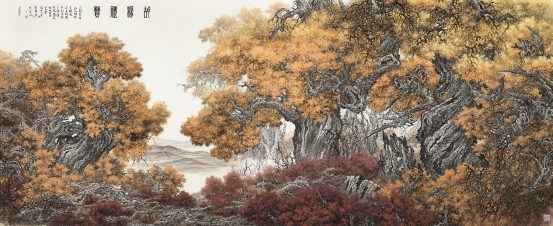
张介宇作品鉴赏
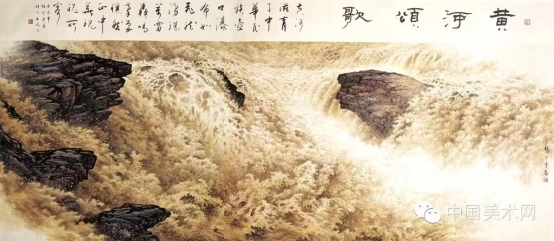
张介宇作品鉴赏
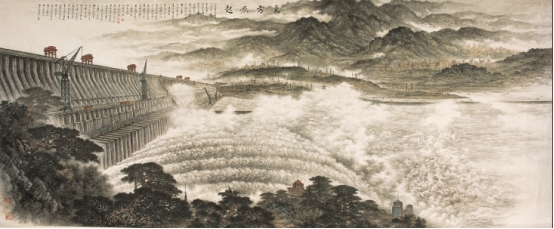
张介宇作品鉴赏
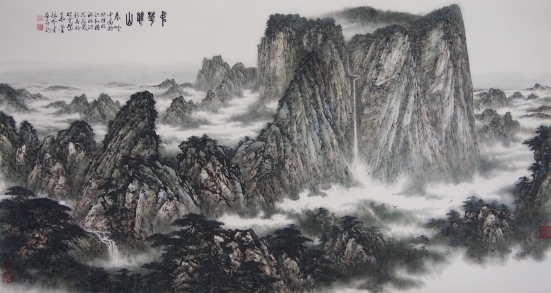
张介宇作品鉴赏
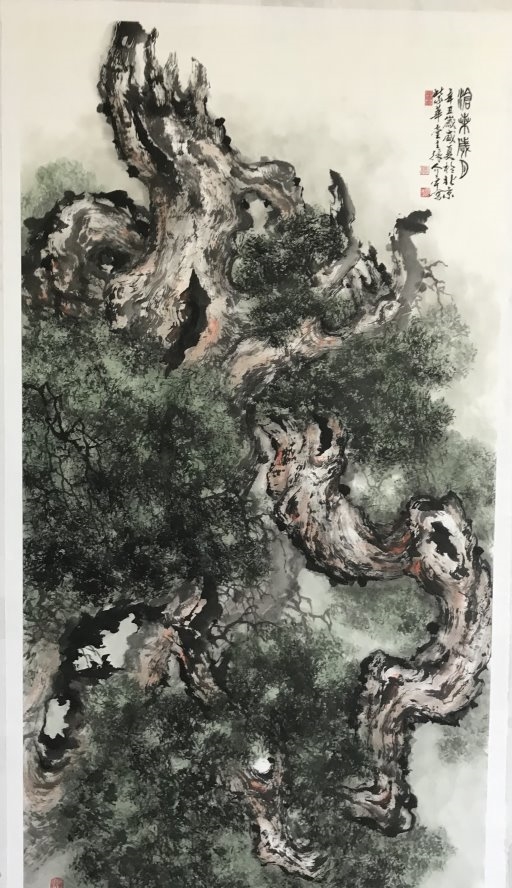
张介宇作品鉴赏
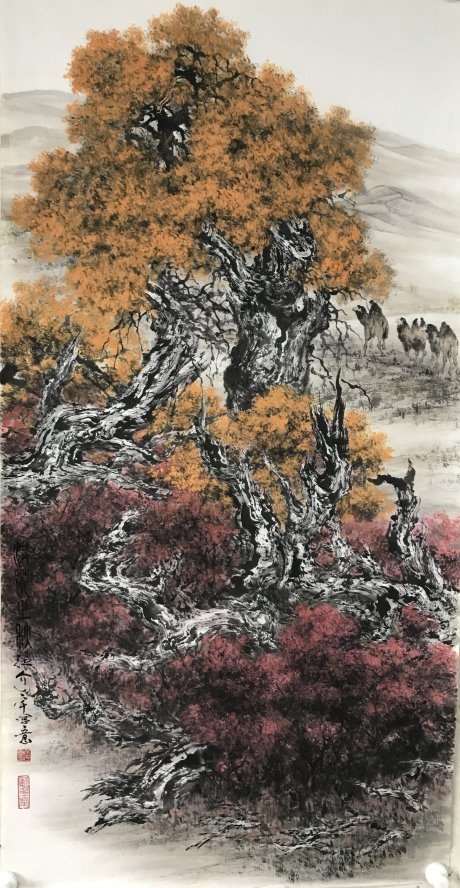
张介宇作品鉴赏
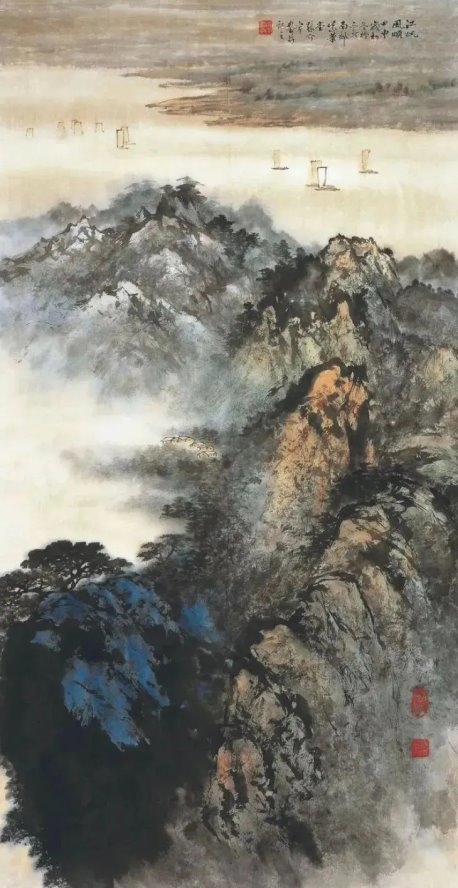
张介宇作品鉴赏
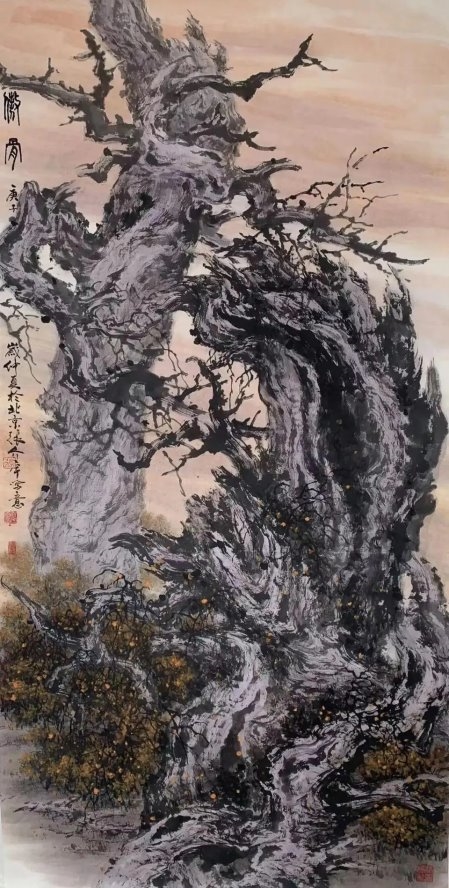
张介宇作品鉴赏
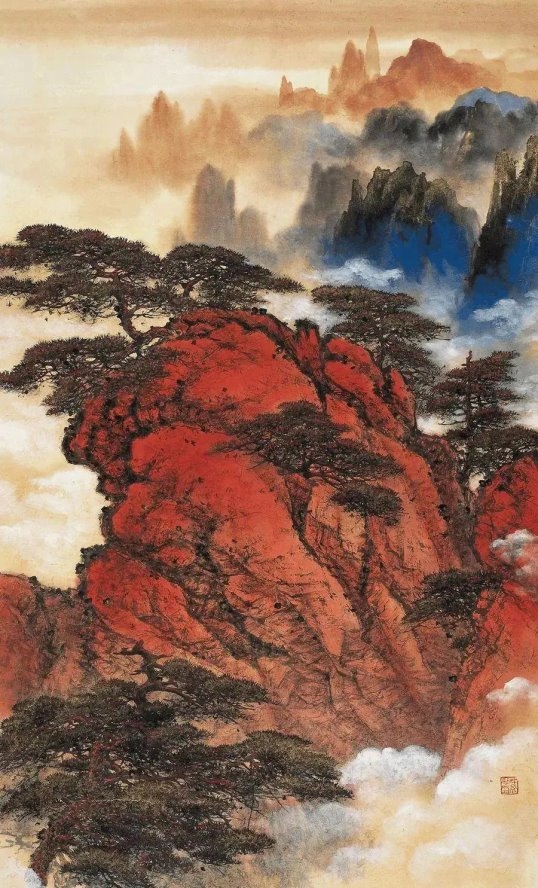
张介宇作品鉴赏
